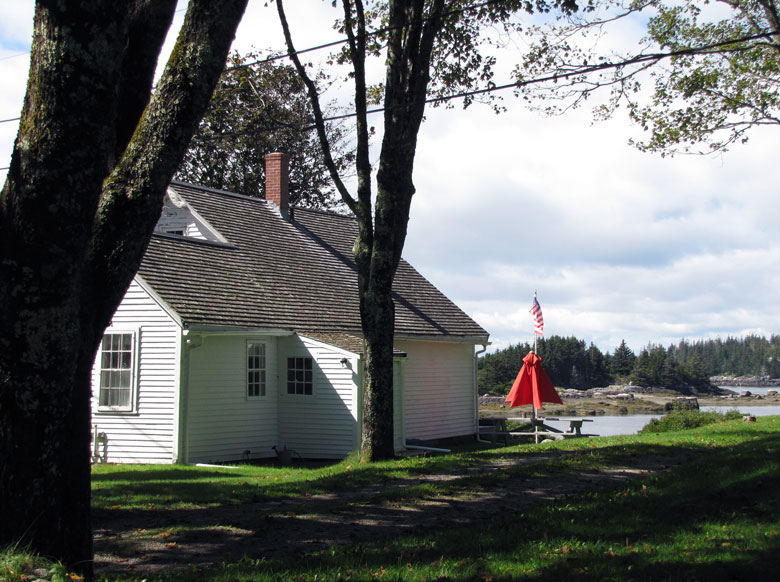With the help of a $840,000 Maine Housing grant, the Vinalhaven Housing Initiative begins construction this fall on its first project to create affordable homes for islanders, year-round workers, and elders priced out of the housing market.
“It’s a crisis,” said Dylan Jackson, the group’s project director. “Soaring housing costs are driving year-round residents from their homes, forcing young people to move off-island, and altering the character of Maine’s largest unbridged working island.”
The nonprofit VHI was formed in 2023 with a mission to create year-round, affordable and sustainable housing for island residents. VHI’s initial project begins this month when the island’s ferry crew quarters, which was slated for demolition, will be moved to East Boston Road to join an existing VHI property with two rental apartments.
The crew quarters will be reconfigured to a three-bedroom family home, says VHI president Elin Elisofon. In addition, the property will feature a pre-built modular home, which will be brought to the island by barge and placed on its foundation.
“Depending on the size of the family and number of people in each apartment,” Elison said, “there could be as many as ten or more individuals, including children and pets, living year-round in energy efficient housing, close to school, the library and the village center.”
“There are more and more fishermen going out without a stern man because there’s no housing for them…”
Some village streets, traditionally lit up by year-round residents during winter months, are now dark as more houses have become second homes or short-term rentals. The high demand for seasonal and investment properties—not only on Vinalhaven, but throughout Maine—has led to increased property prices and taxes that are untenable for those trying to make a living on the island.
“This is an issue that affects us all,” says Jackson. “VHI is working to ensure that there is a place here for our elders and the next generation of islanders, as well as the teachers, tradesmen, fishermen, medical support staff, and the many working people who make our island home a viable offshore community.”
Twelve miles off the coast of Rockland, Vinalhaven is known for its robust lobster fleet, but lifelong resident and VHI Board member Darline Beckman says the housing shortage is affecting the industry.
“I’ve worked a lot on the waterfront, and there are more and more fishermen going out without a stern man because there’s no housing for them. We all know it’s dangerous going out alone, and eventually some guys give up fishing if they can’t find the help. These are the people we’re counting on to be the workforce, but they’re hard hit.”
When Beckman graduated from Vinalhaven High School, she says she and her classmates could easily find an apartment.
“That has all changed in one generation.”
The Maine Housing grant and loan from the Genesis Fund do not cover the project’s operational costs, so VHI is launching a campaign to raise $200,000. The nonprofit, with a volunteer board, also encourages donations of housing and/or land to ensure affordable housing for coming generations.
Vinalhaven joins several unbridged Maine islands—including Islesboro, Isle au Haut, Monhegan and North Haven—with nonprofits supporting affordable, year-round living.
Island Institute’s Alex Zipparo, who founded the Maine Island and Coastal Affordable Housing Coalition, says organizations like VHI are rare on the mainland, while islands have been leaders in this work out of necessity
“These community-led initiatives are a model for rural, inland towns that are now experiencing the housing challenges that islands have always faced. Islands were the innovators and now stand in unity with other rural communities grappling with housing affordability,” Zipparo said.
A 2022 report by Maine State Housing Authority found that “the average house price in Maine is unaffordable to the average income household in all Maine counties, except Aroostook.”
Vinalhaven’s heritage is at stake with the housing crisis.
“For hundreds of years, Vinalhaven has been a working, multi-generational community,” said Jackson. “Without available housing, this culture may be a thing of the past.”





